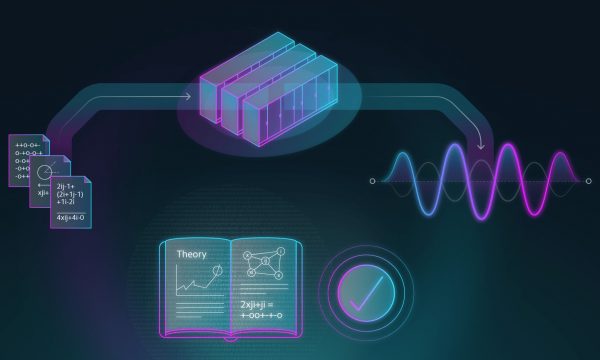
The IOTA Foundation is one of the more fascinating entries into the cryptocurrency world. A high profile concept that has encountered controversy almost from the beginning, the German based company has made big promises while being pin-balled around by criticism and plaudits alike. IOTA has been described as a Bitcoin usurper with their Blockchain replacement called “tangle” designed to be far less costly than a BTC transaction. IOTO can be a currency but it is also targeting the data collected by connected devices. The Internet of Things (IoT) generates loads of information but this data is not widely utilized and tends to be isolated for single purposes. IOTA wants to put this information to work in a decentralized marketplace making it more actionable and more valuable.
Just this past week, IOTA was hit with an attack of sorts with claims that $4 million in IOTA was stolen. According to a post on Medium, this is what happened;
“On January 19th, 2018, some IOTA users lost their funds to an unknown attacker. The root cause that allowed this to happen was users who chose to rely on online generators to create their seeds. From what I’ve heard, many users who lost their funds created their seeds at iotaseed.io (not linked here for obvious reasons). Chances are, the folks behind this and potentially other seed generators have sat tight for a while, collecting piles of seeds, though the actual numbers of users affected are not known to me. The fact, that iotaseed.io is still online at the time of this writing might suggest that the site got compromised itself, and its not the folks behind the service who ran the attack.”
 The post went on to state that IOTA technology remains secure as the attacker did not access via a vulnerability, the theft was more of a bait and switch scam.
The post went on to state that IOTA technology remains secure as the attacker did not access via a vulnerability, the theft was more of a bait and switch scam.
But this is not the only hiccup IOTA has experienced. IOTA has been criticized by the prominent Digital Currency Initiative (DCI) at the MIT Media Lab.
At the end of last year, in a series of posts the Lab leveled criticism against IOTA’s approach and potential security issues. The Lab said it had “uncovered a gaping hole in IOTA’s software” and said “IOTA’s relationships with top-tier companies continue to be nebulous.” A more detailed description of the vulnerability allegedly uncovered is available here.
The MIT Technology Review actually defended IOTA a bit only to be swatted away by the MIT Media Lab once again.
And how does IOTA feel about all of this?
Well that’s not too hard to guess. You can read IOTA’s extended rebuttal in a four part series of counter statements entitled; “Response to the Digital Currency Initiative at the MIT Media Lab.” It is available in its entirety here and it is worth a review. In fact, I recommend it.
 The IOTA team hammers the MIT Media Lab challenging each and every accusation while calling the Lab’s motives into question. IOTA alleges potential conflicts of interest within the Lab as some of the authors appear to be engaged in projects that are in direct competition to IOTA’s mission. But the response goes further than that in challenging the Lab’s various assertions while admitting that IOTA is “still extremely young compared to Bitcoin and Ethereum,” and problems will naturally be encountered along the way. You can draw your own conclusions in the cage match between the two sides and, in fact, IOTA wants the “entire Distributed Ledger Technology community [to] decide the relevance of this information for themselves.”
The IOTA team hammers the MIT Media Lab challenging each and every accusation while calling the Lab’s motives into question. IOTA alleges potential conflicts of interest within the Lab as some of the authors appear to be engaged in projects that are in direct competition to IOTA’s mission. But the response goes further than that in challenging the Lab’s various assertions while admitting that IOTA is “still extremely young compared to Bitcoin and Ethereum,” and problems will naturally be encountered along the way. You can draw your own conclusions in the cage match between the two sides and, in fact, IOTA wants the “entire Distributed Ledger Technology community [to] decide the relevance of this information for themselves.”
Recently, I had the chance to hop on the phone with Dominik Schiener, co-founder of IOTA, to hear his thoughts first hand. I first asked him if IOTA is the new and improved Bitcoin and he said that was not the case;
“No. There is not going to be one distributed ledger technology (DLT) or one Blockchain. In the future there will be 3 or 4 options and IOTA will be one of the permissionless ones. That is our main focus. We do transactions very well. Very efficiently send money from A to B. And send or share data.”
Schiener said that Bitcoin was designed as a payment system. While revolutionary, the protocol never was really bold. As such, Bitcoin is an archaic technology and it is losing its dominance. That is where IOTA is going to be the payment system. But Schiener does not believe it will completely collapse.
“It will not be a payment system. It will be a digital asset,” said Schiener.
 So is the IOTA Tangle ledger superior to other Blockchain tech? Is it the one Crypto to survive them all?
So is the IOTA Tangle ledger superior to other Blockchain tech? Is it the one Crypto to survive them all?
“So the main point is that Blockchain has been proven not work because it is inherently limited … IOTA is really the further improvement of Blockchain. We create consensus via very different way. We were the first ones to showcase a scalable DAG-based DLT protocol beyond the Blockchain.”
And what about the MIT Lab controversy and its vulnerability claims?
“The background story is quite a controversial topic in the beginning,” stated Schiener. “One thing we want to emphasize is DCI is not the MIT Lab. It is a subgroup that we are in touch with. And I would not call it a vulnerability but it was a Collision. They said it was a rookie mistake. This simply does not hold true. Look at Z Cash. There is a serious vulnerability there. We have to go further and faster to battle test the market. We had to build our own Hash function out of necessity. We had to do this to accelerate our algorithms on our own system. Most of their claims are ridiculous. IOTA is not vulnerable and they came up with weird attack scenarios. When we looked at their attacks they were not feasible.”
Schiener continued to explain that IOTA has provided their rebuttal to the claims (linked above) and the MIT Lab has not provided constructive feedback.
“We have asked them to release the code of the Hash Collision but it has never happened. It is an ongoing fight. We hope too close this soon and move forward.”
 Perhaps more importantly, IOTA requires meaningful partnerships to evolve. I asked Schiener if the partnership with the International Transportation Innovation Center is indicative of other forthcoming arrangements. As Volkswagen just joined their advisory board this week it is safe to say the ITIC partnership is foreshadowing future similar alignments.
Perhaps more importantly, IOTA requires meaningful partnerships to evolve. I asked Schiener if the partnership with the International Transportation Innovation Center is indicative of other forthcoming arrangements. As Volkswagen just joined their advisory board this week it is safe to say the ITIC partnership is foreshadowing future similar alignments.
“Mobility for IOTA is probably the most strategic option for us,” said Schiener. “The most important distributed ledger for us. We are setting up partnerships on this. He [Dr. Joachim Taiber] has a serious background and he was first an advisor. Partnering with major non-profit made sense.”
Schiener said they were currently focusing on some organizational issues regarding IOTA. He said it was ironic that it is still difficult to get a bank account if you are engaged in Cryptocurrencies.
IOTA is speaking with a lot of executives from major companies. They don’t just want German companies involved. Schiener said he was preparing a trip to Shanghai and Tokyo to meet with several unnamed companies. Expect additional announcements soon.
I was curious as to his relationship with the Germany regulators – BAFIN. He said they have been in active dialogue with both BAFIN and the European Commission. IOTA is taking regulation seriously.
I had read that all of the founders had to purchase their own IOTA tokens in the ICO. This is in stark contrast to existing norms. Schiener used the example of Ripple founders enriching themselves from their ICO.
“When it comes to IOTA we are taking the long term into account. When we started ITOA we wanted to build a currency. It was not about selling shares to become rich. Some of the ICOs were becoming crazy. Fuck that. We just don’t want the founders to become incredibly rich. We want to build something sustainable. BOSCH [an IOTA token owner] does not want to be associated with a Crypto where the founders control 10 to 15 percent of supply. The founder of Ripple is one of the wealthier persons on earth. That is absurd. Does Ripple create this much value? it does not. Everyone who wants a stake in the protocol has to pay for it.”
Schiener explained that If you want to have a foundation then you have to donate money. The founders donated a percentage of the total supply to create their foundation which is rather well endowed.
“One is the main things that is hurting cryptocurrency right now is everyone is too fucking rich.They are buying ad space on Time square. This is absolutely ridiculous. We have enough incentive to work 24/7 to work on IOTA. We are really using this capital to work on our ecosystem. I want it to be durable … to outlive us. Today the IOTA foundation is one of the top 20 non profits in Germany. This goes beyond ourselves and beyond our egos.”
[clickToTweet tweet=”‘One of the main things that is hurting #cryptocurrency right now is everyone is too fucking rich'” quote=”‘One of the main things that is hurting #cryptocurrency right now is everyone is too fucking rich'”]
There has been a good amount of chatter on this but I asked what crucial issues he believed IOTA would solve first.
“Supply chain tracking has the highest potential for IOTA. We truly believe IOTA can be the backbone for inventory tracking. We are focusing on two things. Mobility and supply chain. We are working on tracking and how we can install a device and give access to stakeholders.”
Following supply chain management is energy and then healthcare.
It has been posted that IOTA has been speaking with some Central Banks. I asked Schiener if there has been any progress in these discussions. He is already on the record saying banks play a crucial role in the IOTA ecosystem.
“One thing I can say is that I cannot say what we are doing. Traditionally, the Libertarians and Bitcoin people like to say Fuck banks. But the thing is, Banks play a crucial role in adoption of this [digital assets]. They are a gateway for the future. Traditional currencies to cryptocurrencies. We will enable this. They are crucial bridges. The development of IOTA is becoming more stable. Banks play a crucial role. Every time you make a transaction you have to transfer into IOTA. When a machine receives IOTA they can sell it immediately.”
Schiener explained that they want to get rid of this uncertainty of volatility by working with central banks. He added that In 2018 they will start to work more closely with them.
I asked if there would be any forthcoming announcements and he said there will be announcements with Banks in general.
Was part of the opening of the #BoschIoTCampus yesterday in Berlin. Looking forward to all the projects that will be built and demo’ed here. #IOTA pic.twitter.com/wMzagRSZ3L
— Dominik Schiener (@DomSchiener) January 19, 2018
 Bosch purchased large, but undisclosed amount of IOTA tokens from the foundation. Schiener said they are starting to work more closely with Bosch as they are shifting to be an IoT company
Bosch purchased large, but undisclosed amount of IOTA tokens from the foundation. Schiener said they are starting to work more closely with Bosch as they are shifting to be an IoT company
Beyond Bosch, IOTA is apparently working with more than 40 companies on the data marketplace but most of the companies they cannot mention right now.
The IOTA team is really trying to establish the IOTA technology to execute on their vision of a new distributed ledger. Schiener believes that ICOs have become a great way for new ideas to raise capital quickly and easily but it is not always clear what the benefit is of creating a token if it is just used for paying for a service. Schiener wants to maintain a laser focus on their objectives;
“We do our own thing. Let the cryptocurrency market do theirs.”

